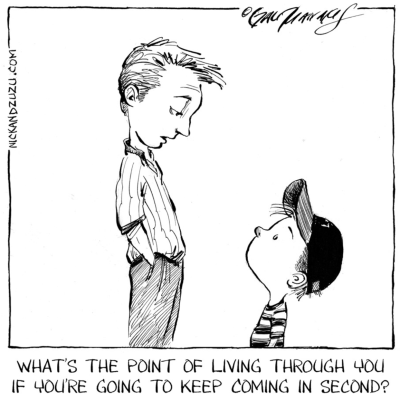Ivy Leaguers: Stop Sprinting and Take a Break
School can be compared to a leisurely jog with friends: chatting, having fun, and enjoying breaks along the way. And it is, at least, for most of the student population. However, for those trying to get into an Ivy League School, it’s more like an endless marathon where you have to keep sprinting.
Some parents and shared beliefs have painted this picture where the Ivy League is a golden one-way ticket to success. Maybe it is, maybe it isn’t. There’s a lot of debate over that issue. Instead, let’s think about the effects of trying to get this ticket.
In order to be a contender for this ticket, generally, students must excel in almost everything. Most find themselves overloaded with tons of extracurriculars, studying for as many AP classes as they can, striving for perfect scores on every test, practicing to get into the top one percent of teens their age in sports, and more.
It inevitably causes people to burn out. Many lose sleep, miss out on their social life, and don’t have fun because they feel this constant pressure to excel and do better than their peers. To be perfect.
The American Psychological Association found that the rising expectations among parents are linked to an increase in perfectionism, which has damaging mental health consequences. Perfectionism from this pressure often becomes a lifelong trait, ultimately hurting the students even after school.
It’s not surprising when you think about it. From middle school, parents enroll students in advanced classes and extracurriculars designed to build the perfect college application. Once they reach high school, the stakes feel incredibly high. Every assignment, every test, every activity becomes a make-or-break moment toward that one acceptance letter. The Pew Research Center reiterates this sentiment, finding that around 61% of teens say they feel a lot of pressure to get good grades.
Parents, albeit with the best of intentions, only worsen the pressure. They want the best for their children and believe that an Ivy League education is a ticket to a successful future. However, the reminders about grades, the push for more extracurricular involvement, and the comparisons to other kids can make them feel like they’re never enough, no matter what they do.
Society is also a part of the problem. The prestige of Ivy League and elite schools is part of pop culture. Movies, books, and media (like Spiderman: No Way Home referencing MIT) portray these institutions as the ultimate goal. This strengthens the idea that attending an elite college is the only path to success, further fueling the pressure on students.
Take a step back and consider the broader picture. What are parents teaching about success and happiness? By focusing so much on college, parents are teaching children that their worth is tied to the name of the college they attend. They are teaching their children to rely on external validation rather than internal validation, knowing that they did as much as they could.
Parents need to broaden their definition of success. There are many paths to a fulfilling and successful life, and they don’t all lead through the gates of an Ivy League school. Professor Rachel Garlinghouse wrote that there are many other options for college. Community colleges, volunteer work, vocational schools, gap years, and certificate programs can give opportunities for growth.
However, even without a college degree, people can still be successful. Indeed, Jeff Mazur from, ironically, the Harvard Business Review, wrote that companies need more workers than workers need jobs now. Businesses have to bring new talent in and to do so, they are removing college degree requirements. Now, to be recruited, people only need to show recruiters that they are driven, passionate, and have the necessary skills.
Sure, an Ivy League education can open doors, but they aren’t the only option that can. We need to ask ourselves: is it worth sacrificing our kids’ mental health? Maybe it’s time to stop only focusing on the name of the school and pay more attention to the overall well-being and happiness of our children. After all, success isn’t just about where you go to college, it’s also about finding balance and joy in the journey. And if you can be first while being relaxed, that means you’re going to be very successful.








